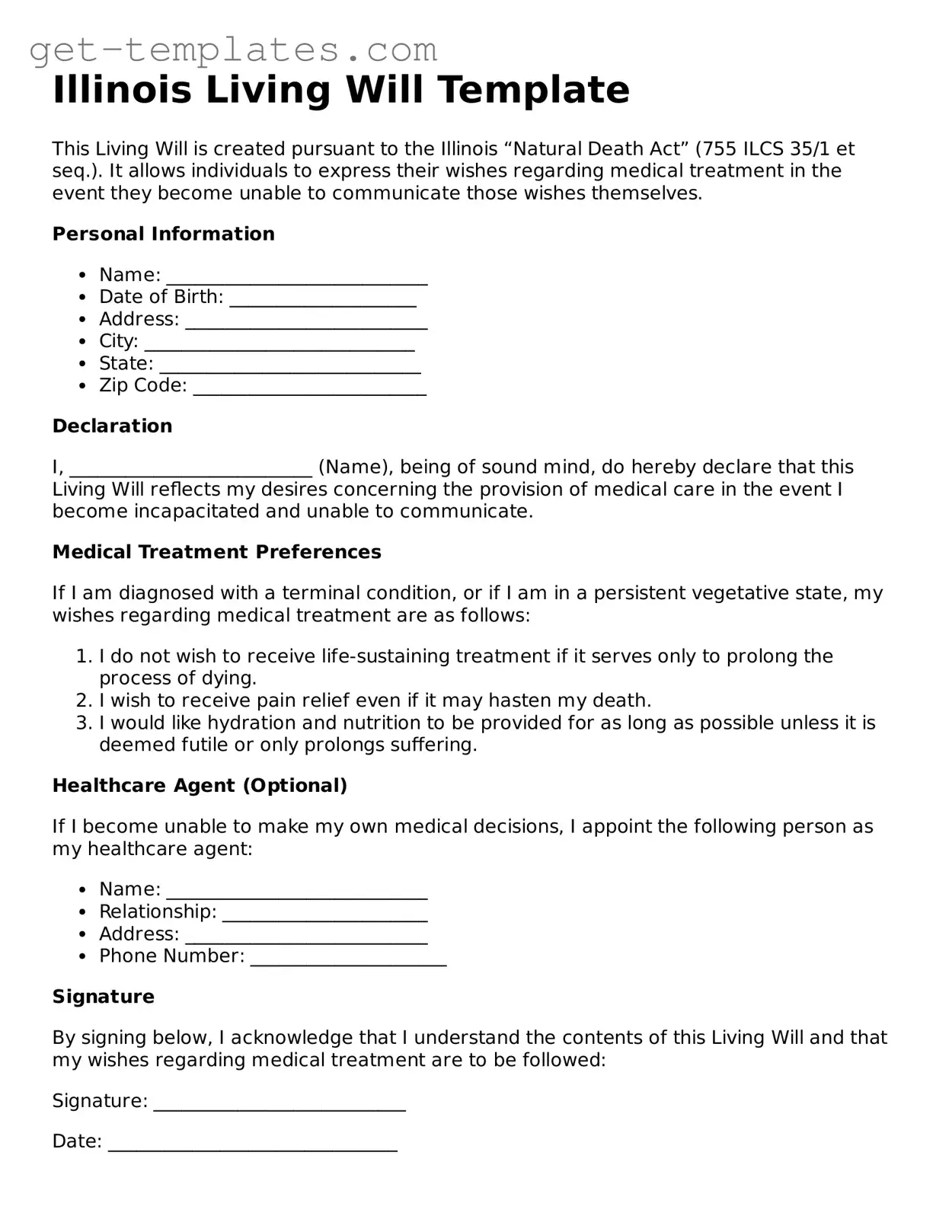Attorney-Approved Living Will Document for Illinois
A Living Will is a legal document that allows individuals in Illinois to express their wishes regarding medical treatment in the event they become unable to communicate those wishes themselves. This form provides guidance to healthcare providers and loved ones about the individual's preferences for life-sustaining measures. Understanding the importance of this document can help ensure that personal values and choices are honored during critical moments.
Get Document Online

Attorney-Approved Living Will Document for Illinois
Get Document Online
You’re halfway through — finish the form
Finish Living Will online — edit, save, download made easy.
Get Document Online
or
⇓ PDF Form
